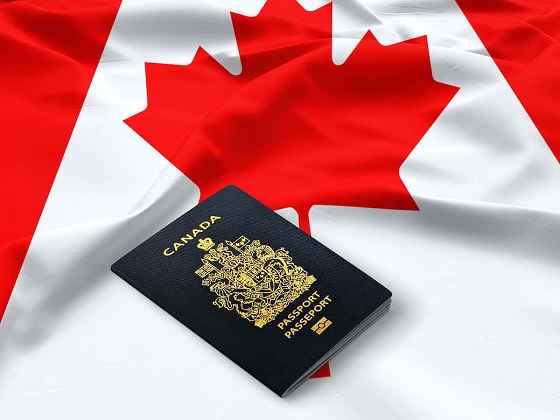Economy
Federal budget: You can’t solve a productivity emergency with tax hikes

News release from the Montreal Economic Institute
- Ottawa still has no plan to return to a balanced budget.
- Under Justin Trudeau, the federal government has hired over 98,000 new bureaucrats.
Montreal, April 16, 2024 – The increase in the capital gains tax inclusion rate will further exacerbate Canada’s productivity lag, asserted the Montreal Economic Institute in response to the publication of the federal budget this afternoon.
“Canada’s productivity is in crisis and the best way to get it back up is to attract new investments,” explains Renaud Brossard, Vice-President of Communications at the MEI. “And few are those who have been able to lure investments and job creators with promises of higher taxes.
“With this budget, the Trudeau government is shooting us in the foot.”
In the budget, the Trudeau government has announced the capital gains inclusion rate from 50 per cent to 66 per cent for capital gains superior to $250,000 per year.
Last March, the deputy governor of the Bank of Canada, Carolyn Rogers, spoke of a “productivity emergency” in Canada.
Canadians rank second to last among G7 countries in terms of productivity per hour worked, according to an MEI study published last August.
The Institute explains that this lag arises from a shortfall in private non-residential investment. In 2018, this investment amounted to an estimated $27,307 per American worker, but only $17,389 per Canadian worker.
“Every dollar the government expects to subtract from the pockets of investors with this tax hike is a dollar of potential investment lost,” explains Brossard. “It’s time for the Trudeau government to realize it doesn’t have a revenue problem, but rather a spending problem.”
The budget tabled by the Trudeau government today forecasts a shortfall of $39.8 billion for the year 2024-2025.
High interest rates are contributing to this situation, with interest payments on the federal debt estimated to reach $54.1 billion dollars this year, up 14.6 per cent over last year.
The MEI observes that one of the major sources of increased spending is the massive hiring of federal public servants under the Trudeau government.
Since the first Trudeau budget in 2016, the federal public service workforce has grown by more than 98,268 employees. Considered in terms of the number of government employees per Canadian, this represents a 28% increase according to an MEI study published in January.
“The explosion in the number of bureaucrats in recent years is symptomatic of a government that has lost all control over the growth of its spending,” explains Brossard. “There are now 28 per cent more federal public servants per capita, but very few Canadians would tell you that Ottawa is doing 28 per cent more for them.”
* * *

The MEI is an independent public policy think tank with offices in Montreal and Calgary. Through its publications, media appearances, and advisory services to policy-makers, the MEI stimulates public policy debate and reforms based on sound economics and entrepreneurship.
Automotive
Canadian interest in electric vehicles falls for second year in a row: survey

From LifeSiteNews
Canadians’ disinterest in electric vehicles comes as the Trudeau government recently mandated that all new light-duty vehicles in Canada are zero emission by 2035.
Research has revealed that Canadians are increasingly unwilling to purchase an electric vehicle (EV).
According to an April 22 survey from AutoTrader, Canadians remain skeptical of Prime Minister Justin Trudeau’s electric vehicle mandate and ongoing advertisement surrounding electric vehicles, as interest in owning one dropped for a second year in a row.
“Overall, while almost half of non-EV owners are open to buying an EV for their next vehicle, interest in EVs has declined for the second year in a row,” reported Tiffany Ding, director of insights and intelligence at AutoTrader.
In 2022, at least 68 percent of Canadians were interested in buying an electric vehicle. However, by 2023, the number declined to 56 percent. So far in 2024, there is even less interest, with only 46 percent saying they were open to purchasing one.
“AutoTrader data shows a direct correlation to gas prices and EV interest, and since gas prices have normalized from their peak in 2022, EV interest has also dropped,” a summary of the survey explained.
However, Canadians did show a slight increase of interest in hybrid vehicles, with 62 percent of those looking to purchase an electric vehicle saying they would look at a gas-electric hybrid, compared with 60 percent in 2023.
The survey also questioned Canadians regarding Trudeau’s Zero Emission Vehicle (ZEV) mandate, which requires all new light-duty vehicles in Canada are zero-emission by 2035, essentially banning the sale of new gasoline/diesel-only powered cars.
The mandate comes despite warnings that it would cause massive chaos by threatening to collapse the nation’s power grids.
“Over 75 percent of respondents are aware of the federal government’s ZEV mandate, which requires all new light-duty vehicles sold in Canada to be zero-emission by 2035,” the survey found.
However, the respondents revealed that they believe it’s “unlikely that Canada will be able to meet the federal government’s ZEV target due to the current inadequate charging infrastructure or a change in political power that could revoke or amend the ZEV mandate timeline.”
Canadians’ concerns in buying an electric vehicle include limited travel range/distance, inadequate availability of charging stations, higher purchasing costs, and concerns that they do not perform well in cold weather.
Indeed, this winter, western Canadians experienced firsthand the unreliability of Trudeau’s “renewable” energy scheme as Alberta’s power grid nearly collapsed due to a failure of wind and solar power.
Trudeau’s plan has been roundly condemned by Canadians, including Alberta Premier Danielle Smith. In 2022, Smith denounced a federal mandate that will require all new cars sold after 2035 to be “zero emission” electric (EVs) vehicles and promised that Albertans will always have the choice to buy gasoline-powered cars.
Since taking office in 2015, Trudeau has continued to push a radical environmental agenda similar to the agendas being pushed the World Economic Forum’s “Great Reset” and the United Nations’ “Sustainable Development Goals.”
The reduction and eventual elimination of the use of so-called “fossil fuels” and a transition to unreliable “green” energy has also been pushed by the World Economic Forum (WEF) – the globalist group behind the socialist “Great Reset” agenda – an organization in which Trudeau and some of his cabinet are involved.
The Trudeau government’s electric vehicle plan comes despite the fact Canada has the third largest oil reserves in the world. Electric cars cost thousands more to make and buy, are largely considered unsuitable for Canada’s climate as they offer poor range and long charging times during cold winters and have batteries that take tremendous resources to make and are difficult to recycle.
Business
Ottawa’s capital gains tax hike—final nail in ‘business investment’ coffin

From the Fraser Institute
By Tegan Hill and Jake Fuss
From 2014 to 2022, inflation-adjusted total business investment (in plants, machinery, equipment and new technologies but excluding residential construction) in Canada declined by C$34 billion. During the same period, after adjusting for inflation, business investment declined by a total of $3,748 per worker
According to the recent federal budget, the Trudeau government plans to increase the inclusion rate from 50 per cent to 66.7 per cent on capital gains over $250,000 for individuals and on all capital gains realized by corporations and trusts. Unfortunately, this tax hike will be the final nail in the coffin for business investment in Canada, which likely means even harder economic times ahead.
Canada already faces a business investment crisis. From 2014 to 2022, inflation-adjusted total business investment (in plants, machinery, equipment and new technologies but excluding residential construction) in Canada declined by C$34 billion. During the same period, after adjusting for inflation, business investment declined by a total of $3,748 per worker—from $20,264 per worker in 2014 to $16,515 per worker in 2022.
While business investment has declined in Canada since 2014, in other countries, including the United States, it’s continued to grow. This isn’t a post-COVID problem—this is a Canada problem.
And Canadians should be worried. Businesses investment is key for strong economic growth and higher living standards because when businesses invest in physical and intellectual capital they equip workers with the tools and technology (e.g. machinery, computer programs, artificial intelligence) to produce more and provide higher quality goods and services, which fuels innovation and higher productivity. And as firms become more efficient and increase profits, they’re able to pay higher wages, which is why business investment remains a key factor for higher incomes and living standards.
The Trudeau government’s policies—increased regulation, particularly in the energy and mining sectors (which makes Canada a relatively unattractive place to do business), higher and uncompetitive taxes, and massive federal deficits (which imply future tax increases)—have damaged business investment.
Unsurprisingly, weak business investment has correlated with a weak economy. In the fourth quarter of 2023, real economic growth per person ($58,111) officially fell below 2014 levels ($58,162). In other words, Canadian living standards have completely stagnated. In fact, over the last decade economic growth per person has been the weakest on record since the 1930s.
Instead of helping fix the problem, the Trudeau government’s capital gains tax hike will further damage Canada’s economy by reducing the return on investment and encouraging an exodus of capital from the country. Indeed, capital gains taxes are among the most economically-damaging forms of taxation because they reduce the incentive to invest.
Once again, the Trudeau government has enacted a policy that will deter business investment, which Canada desperately needs for strong economic growth. The key takeaway for Canadians? Barring a change in policy, you can expect harder times ahead.
Authors:
-

 CBDC Central Bank Digital Currency2 days ago
CBDC Central Bank Digital Currency2 days agoA Fed-Controlled Digital Dollar Could Mean The End Of Freedom
-

 Frontier Centre for Public Policy1 day ago
Frontier Centre for Public Policy1 day agoHow much do today’s immigrants help Canada?
-

 Alberta14 hours ago
Alberta14 hours agoPrincipal at Calgary Elementary School charged with possession of child pornography
-

 Fraser Institute14 hours ago
Fraser Institute14 hours agoFederal government’s fiscal record—one for the history books
-

 Alberta9 hours ago
Alberta9 hours agoAlberta threatens to fight Trudeau government restrictions on Canada’s plastics industry
-

 Alberta14 hours ago
Alberta14 hours agoRed Deer Company fined $360,000.00 after 2022 workplace fatality
-

 Brownstone Institute2 days ago
Brownstone Institute2 days agoThe Numbers Favour Our Side
-

 Bruce Dowbiggin14 hours ago
Bruce Dowbiggin14 hours agoIn Toronto The Leafs Always Fall In Spring: 2024 Edition









